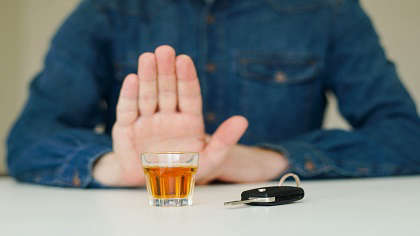
![]()
Of those who admitted consuming alcohol, the incidence was higher among male drivers (14%), those who drive for work (14%), and those with a history of collision involvement (24%).
Almost one in three (28%) of this group admitted to consuming two or more drinks on the last occasion they drove after consuming alcohol, in the last 12 months.
Nearly three quarters (73%) of motorists surveyed agreed that ‘most of my acquaintances/friends think driving under the influence of alcohol is unacceptable.’ In comparison, 85% of drivers surveyed agreed with this statement in 2019, which the RSA described as a “concerning decline.”
Results from the 2023 Behaviour and Attitudes survey of over 1,200 drivers were presented by the RSA at a Safe and Sober seminar today.
This seminar focussed on drink-driving in Ireland as well as raising awareness on the impact of ‘Alcohol Ignition Interlock’ technology and rehabilitation programmes to help reduce the number of alcohol-related road deaths.
The seminar was hosted by the European Transport Safety Council (ETSC) in association with the Medical Bureau of Road Safety (MBRS) and the RSA.
Also presented at the seminar was the latest analysis from the Medical Bureau of Road Safety (MBRS), which revealed that while the legal limit for the ordinary driver is 50 milligrams per 100 millilitres of blood, the average blood level remains alarmingly high at 160 milligrams per 100 millilitres of blood.
The highest recorded blood alcohol level was 415 milligrams. These high levels are found in both younger and older drivers and in both men and women.
The latest analysis from An Garda Síochána reveals the total number of arrests for driving under the influence of alcohol or drugs for 2023 was 8,863. A total of 46,165 Mandatory Intoxicant Testing Checkpoints were conducted last year.
Alcohol ignition interlocks prevent a vehicle from starting if the driver exceeds the set breath alcohol limit. Currently, alcohol interlocks are only used in Ireland on a voluntary basis in the commercial transport sector.
Minister of State at the Department of Transport, Jack Chambers TD: “A key action of Ireland’s Government Road Safety Strategy called for the establishment of a working group to consider and make recommendations for the implementation of an alcohol interlock programme, supported by a drink drive rehabilitation course for high-risk drink drive offenders.
“This action is nearing completion and will inform road safety policy in Ireland. Data from other countries show how alcohol interlock programmes help in reducing drink-driving, and therefore the number of alcohol-related collisions on the roads.
Liz O’Donnell, Chairperson, RSA said: “Driving under the influence of drink or drugs is a known contributory factor in road fatalities, and if we are going to achieve our goal of zero deaths and zero serious injuries on Irish roads by 2050, we must have zero tolerance to these dangerous driving behaviours.”
Inspector Ross O’ Doherty Garda National Roads Policing Bureau said “Last year we arrested 8,863 people for driving under the influence of alcohol or drugs. Be aware of the danger of drink-driving the morning after also - it takes about 1 hour for each unit of alcohol to pass through the average person’s system.”
A total of 188 fatalities occurred on Irish roads last year, the highest statistic in a decade and a 21% increase in road deaths when compared to 2022.
As of 19th January 2024, there have been 11 people killed on Irish roads, two more than the corresponding period in 2023.